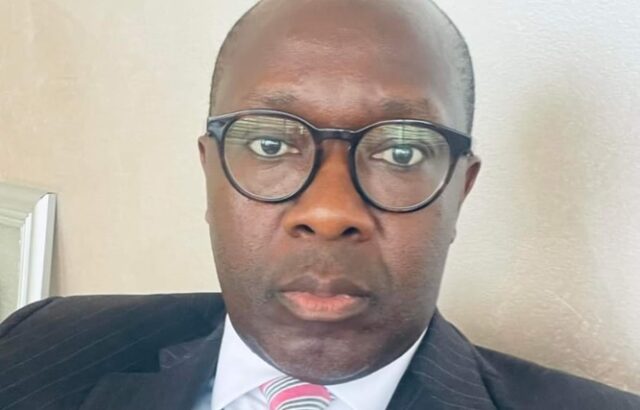In a startling revelation, Gbapolu County Senator Amara Konneh has shed light on the troubling state of affairs within the National Legislature, particularly the Liberian Senate, during recent budget proceedings. His outspoken criticism raises critical questions about governance and accountability in the allocation of public funds.
In a statement reflecting his discontent, Senator Konneh explained why he chose not to support the recast Fiscal Year 2024 budget, which has been marred by chaos and allegations of undemocratic practices. “Last night, I did not support the recast budget because it does not align with my fundamental beliefs,” he stated, emphasizing his commitment to democratic processes and transparent governance. Together with other Senators, he left the session in protest, underscoring the need for integrity in legislative proceedings.
Senator Konneh outlined several key concerns regarding the budget:
- Lack of Transparency: A significant allocation of $1.7 million for “Other Compensation and Liabilities” raised red flags for Konneh. He called for clarity on who would benefit from these funds and the specific services linked to them. “The Liberian people deserve to know the nature of these liabilities, how they were incurred, and by whom,” he asserted.
- Health Sector Funding: The recast budget saw reductions in health funding, prompting protests from Senators. Despite efforts to reallocate funds to health centers in key counties, many facilities, particularly in Western Liberia, have received only a fraction of their allocated budgets. For instance, the Emirates Hospital in Gbapolu received a mere $37,000, while collective funding for 14 health centers in six districts amounted to only $50,000. Konneh voiced urgent concerns over the inadequate support for essential healthcare services.
- Education Challenges: As schools reopened, they faced significant resource shortages, including a lack of benches and instructional materials. Although the legislature restored funding cuts to education, much of the “restored” budget was redirected to tertiary education rather than strengthening primary and secondary education. Konneh highlighted the importance of prioritizing teacher training institutes to improve educational quality.
- Impact on Key Sectors: Senator Konneh stressed the potential negative consequences of proposed cuts to agriculture, energy, and environmental sectors, which are vital for food security and economic growth. He warned that defunding the energy sector could hinder the ability of organizations to provide stable and affordable electricity, exacerbating challenges for businesses and families.
Konneh’s revelations paint a grim picture of the current state of governance in Liberia. He questioned the integrity of passing a non-transparent budget, especially in light of recent allegations of budget manipulation. “Are we committed to good governance, or have we abandoned our country?” he asked, reflecting the frustrations of many Liberians who yearn for accountability and change.
Konneh’s revelations paint a grim picture of the current state of governance in Liberia. He questioned the integrity of passing a non-transparent budget, especially in light of recent allegations of budget manipulation. “Are we committed to good governance, or have we abandoned our country?” he asked, reflecting the frustrations of many Liberians who yearn for accountability and change.
As the nation faces mounting challenges, Senator Konneh’s call for immediate attention to these pressing issues resonates with constituents and advocates for transparency. With a growing sense of disappointment among the populace, the question remains: What should Liberians do to hold their lawmakers accountable and enforce discipline in the National Legislature?
In the wake of these revelations, it is imperative for citizens to demand greater transparency and accountability from their elected officials. Engaging in civic dialogue, advocating for open governance, and actively participating in the democratic process are essential steps toward ensuring that the voices of the people are heard and respected.








